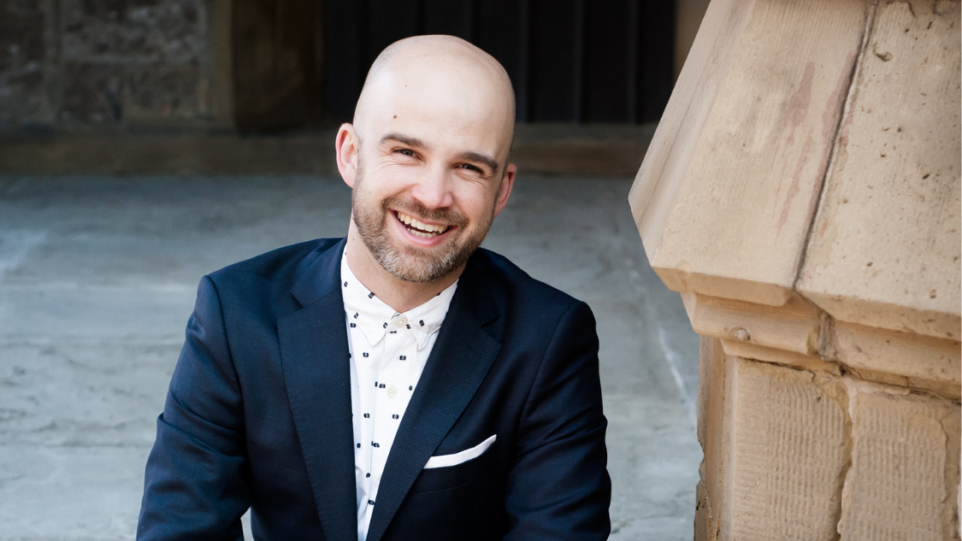Dreaming of Orpheus
Josefine Mindus debuterar på Drottningholms Slottsteater i rollen som Cephisa i operan Orpheus av Telemann.
Josefine Mindus - A Cephisa debuting
Josefine Mindus sings the role of Cephisa in this year’s production of Orpheus, and will appear in the late summer concert Euridice, dove sei? on 17 of August.
What will you be performing at the concert?
I’ll be singing a solo cantata by Pergolesi that features two expansive arias and vivid recitatives, alternating between narration and the voice of Orpheus. The music is exquisitely lyrical and dramatic in its delivery. In addition to the cantata, I’ll perform several works by Handel: two arias from Arianna in Creta and Rinaldo, and a duet from Tolomeo, which I’ll sing alongside Rémy Brès-Feuillet.
Tell us about your journey to the opera stage.
It all began with my composition studies at the composer’s programme in Visby. From there, I gravitated towards classical voice, attending the folk high school in Vadstena, followed by the conservatoire in Hanover. My time in Vadstena introduced me to art songs, and I became utterly engrossed in that repertoire. I learned a great deal. Hanover has an excellent Lied department and attracts many gifted pianists—so as a singer, I had constant access to extraordinary collaborators. It allowed me to delve even deeper, and today I’d happily describe myself as a Lied enthusiast! Opera arrived somewhat later in my life. A turning point was seeing Thomas Adès’ The Tempest broadcast from the Metropolitan—an utterly jaw-dropping moment. I thought, “So opera can be this!”. My first real stage roles came after graduation, during three years at the opera studio at Komische Oper Berlin. For the past year, I’ve been with the Hessisches Staatstheater in Wiesbaden. In Sweden, I sang the role of Bess in Vadstena Academy’s Breaking the Waves in 2022. My portrayal of Cephisa this summer marks my Stockholm debut.
You've been based in Germany for eight years. What is the country like from a singer's perspective?
Initially, my move to Germany was motivated by practicality—I wanted to study abroad and learn a language at the same time. But looking back, I feel deeply grateful for the opportunities my education there afforded me. The professional landscape is remarkable. Despite recent financial constraints in the cultural sector, similar to those in Sweden, the breadth of possibilities is simply different—Germany boasts over 80 opera houses, for instance. From the moment you enter a music school, everything is systematised: which arias you prepare for auditions, which Fach—the vocal category—fits you best. The reason is clear: there’s an entire professional apparatus to step into. It’s both beneficial and challenging, of course. But I’m thrilled to have performed so much music over the years.
What has your experience been with baroque and early music?
At Komische Oper, I sang Eurydice in Monteverdi’s L’Orfeo directed by Barrie Kosky—truly one of the finest artistic experiences I've ever had. That performance sparked a deep desire to explore this music further. I’ve performed quite a bit of Bach, which is widely sung in Germany, and have taken on the role of Amor in Gluck’s Orfeo ed Eurydice along with several Handel parts. But I’d love to dive even deeper into early music—I dream of singing Rameau, more Monteverdi, and those lesser-known works that are waiting to be discovered.
Josefine Mindus was awarded the Anders Wall Scholarship in 2022 and was the recipient of the prestigious Jenny Lind Scholarship in 2023.
Zachary Wilder and the return to Drottningholm
Zachary Wilder is an American tenor based in Paris. He has participated in the Drottningholm Court Theatre's productions The Fairy Queen (2023) and Armide (2024). This summer he will return as a soloist in the concert Journey of Orpheus in the Royal Chapel of Drottningholm the 9 and 11 of August.
How did you discover Baroque music and earlier repertoire?
I grew up in a very musical family – my father works in pop music, and music runs through his whole side of the family. I spent a lot of time in his studio, where I was surrounded by some of the great R&B singers of the 1990s. So, singing was always part of my life. Toward the end of high school, I started taking voice lessons because I was curious about opera, and I fell in love with it. That interest led me to the Eastman School of Music, a well-known conservatory in Rochester, New York. One day, a friend suggested I check out the Collegium Musicum ensemble, he thought the repertoire might suit me. I was experimenting with everything at the time, so I gave it a shot. There, I met a bearded man playing a lute – turns out it was the renowned lutenist Paul O’Dette. I ended up taking all of his classes. The music really resonated with me, as did the philosophy behind it: digging into historical performance practices and exploring what they can teach us today about how to bring this music to life.
Interest in early music and historical performance has grown a lot over the past few decades. What trends do you see in the field today?
One trend I see is a kind of re-evaluation of the work done in the 1970s and 80s. That era shaped a particular performance style that’s been widely imitated. But when you go back to the original sources, you realize that in the 17th and 18th centuries, things were sometimes done quite differently. Of course, we’re all modern people, we can’t perfectly replicate the past, and audiences today hear things differently too. But we can ask deeper questions. Being conscious of how we make interpretive decisions today helps us get closer to the original spirit and impact of the music. Another exciting area is the study of emotional history – how people experienced and expressed emotions in different historical periods, and how our own cultural lens influences the way we connect with that. I find that a really fascinating line of research.
What can audiences expect to hear in the concert?
It’s a small ensemble, just the four of us. We’re exploring the myth of Orpheus through early repertoire, reaching back to medieval and Renaissance composers like Matteo da Perugia and Tromboncino. The idea is to trace the emotional arc of the Orpheus story through celebration, loss, transformation, and transcendence. One special piece we’re including is Sir Orpheus, an early medieval English poem that retells the Orpheus myth but set in an English context with a local king or nobleman as the protagonist. Many poems from that period were sung, but the melodies are often lost. In this case, we’re lucky that the melody survived in the folk tradition of the Shetland Islands.
What does the myth of Orpheus mean to you?
At its core, I think Orfeo is a story about grief. It reminds me of Joan Didion’s The Year of Magical Thinking, where she describes the disorienting experience of loss and how your brain can’t quite accept that someone is gone, so you find yourself performing little rituals or believing, on some level, that they’re still with you. She writes about going into her late husband’s closet just to be near the scent of his clothes. That image really resonates with me. It’s like crossing the river Styx in search of Eurydice. You go into the closet, into the underworld of memory and longing but she’s not there. It’s a mirage. The myth still speaks so powerfully to the experience of loss, even today.
Interviews: Sophie Helsing
Zachary Wilder returns to Drottningholm as a soloist in the concert Journey of Orpheus.


